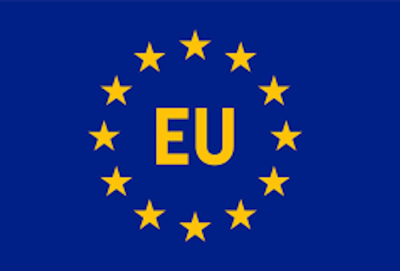The European Union (EU) has intensified its call for the abolition of the death penalty, categorizing the practice as inhumane, degrading, and a violation of human dignity. This assertion was made in a joint statement by the High Representative of the EU, Josep Borrell, and the Secretary General of the Council of Europe, Alain Berset, in commemoration of European and World Day Against the Death Penalty.
The statement reflected the EU’s firm stance on the issue and the growing global momentum against capital punishment.
The EU and the Council of Europe unequivocally oppose the death penalty in all cases, regardless of the circumstances.

According to the statement, the death penalty is an archaic form of punishment that should no longer exist in the modern world. “We welcome the growing worldwide support for the abolition of the death penalty.
More than two-thirds of all countries have abolished the death penalty in law or in practice,” Borrell and Berset noted. They emphasized that in 2023, the number of countries carrying out executions had dropped to its lowest on record, marking significant progress toward the goal of global abolition.
European and World Day against the Death Penalty
Despite this positive trend, the death penalty remains in use in several countries, with five nations—China, Iran, Saudi Arabia, Somalia, and the United States—accounting for the highest number of executions in 2023. According to reports, Iran alone was responsible for a staggering 74% of all recorded executions that year.
The European Union raised particular concern over the use of nitrogen hypoxia, a controversial execution method adopted by some states in the U.S., and condemned the continued application of the death penalty in Belarus, the only European country still practising capital punishment.

The statement reiterated the EU’s appeal to the remaining countries that continue to use the death penalty to impose a moratorium on executions as a preliminary step toward complete abolition. The EU rejected the argument often put forward by proponents of the death penalty, who claim that it serves as a deterrent to crime.
Instead, the statement pointed out that research consistently shows little or no correlation between the use of capital punishment and reduced crime rates. The death penalty, according to the EU, does not contribute to safer societies but instead exacerbates the risk of irreversible miscarriages of justice.
“The death penalty is a relic of the past, which should have no place in the 21st century,” Borrell and Berset declared. They underscored the need for immediate abolition, framing it as not just a matter of justice but a reflection of humanity’s progress toward recognizing the inherent dignity and worth of every person.
EU: A Global Push Toward Abolition
The joint statement is part of a broader global movement against the death penalty, with increasing numbers of countries either abolishing the practice or halting its use through moratoriums. Currently, over two-thirds of the world’s nations have eliminated the death penalty either in law or in practice, signalling a significant shift in global attitudes toward capital punishment. In 2023, several countries made strides toward reform, further isolating those who continue to use the death penalty.
The EU has been a vocal advocate for the global abolition of the death penalty for years, actively supporting initiatives and efforts to eliminate the practice in both bilateral and multilateral forums. As part of its human rights agenda, the EU works closely with international organizations, civil society, and governments to promote the abolition of the death penalty, with a focus on regions and countries where its use remains prevalent.
The Council of Europe, an organization that promotes human rights, democracy, and the rule of law in Europe, has been at the forefront of efforts to end the death penalty on the continent. Since the establishment of the European Convention on Human Rights, the abolition of the death penalty has become one of the core human rights standards in Europe.
The only country in the region still executing individuals is Belarus, which has faced international criticism and pressure to abandon the practice.
Challenges and Criticisms
While there is growing momentum for the abolition of the death penalty, significant challenges remain. In countries like China and Iran, executions are carried out at high rates, often in secret or under opaque legal processes.
In the United States, the death penalty remains legal in several states despite declining public support and numerous controversies surrounding wrongful convictions, racial disparities, and the methods of execution.
The death penalty has also been used as a political tool in some countries, with governments employing capital punishment to suppress dissent or eliminate political rivals. In nations where the judiciary lacks independence or is subject to corruption, the risk of wrongful executions is even higher, raising serious concerns about the fairness of death sentences imposed.
EU: A Call for Global Action
The European Union and the Council of Europe’s joint call for the abolition of the death penalty underscores the growing international consensus that capital punishment has no place in a modern, civilized world. As more countries move away from the practice, global pressure on the remaining nations to follow suit continues to build.
The EU’s message is clear: the death penalty is not only an ineffective deterrent to crime, but it also represents the ultimate denial of human dignity.
As the world moves forward, the EU and its partners remain committed to ensuring that the death penalty is relegated to the annals of history, making way for a justice system that prioritizes human rights, fairness, and the sanctity of life.










